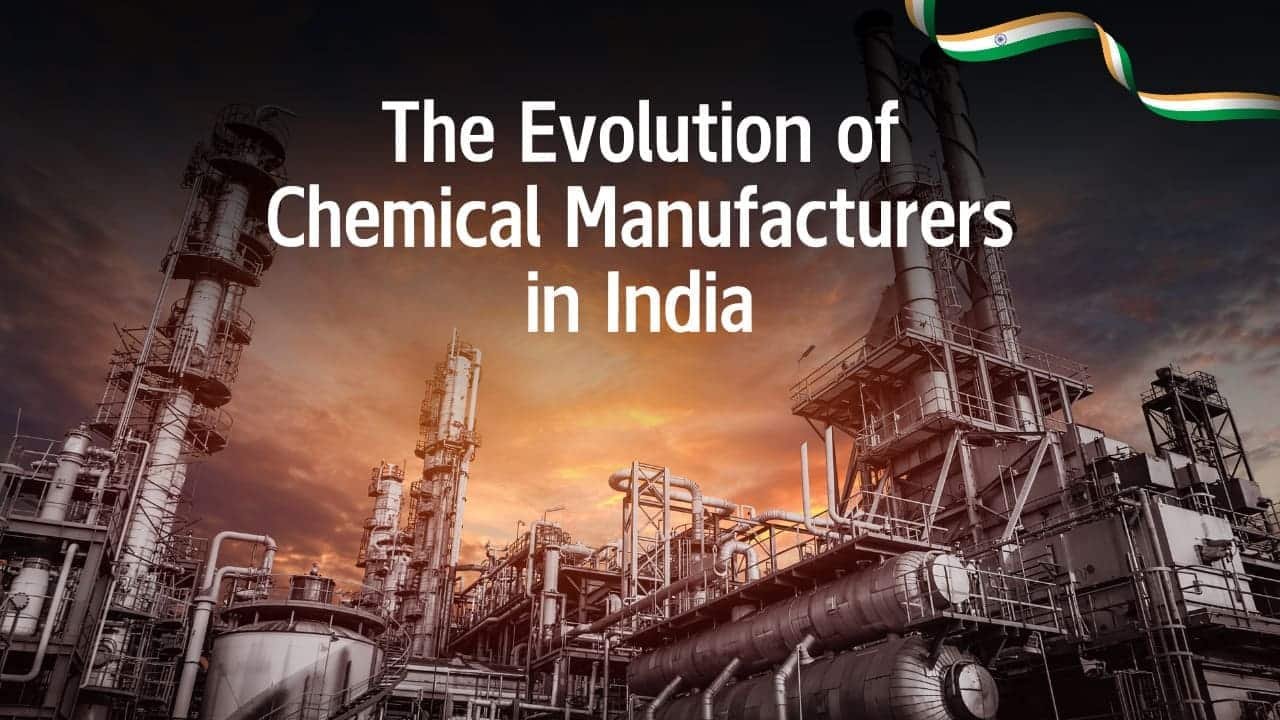India’s chemical industry has evolved significantly, emerging as a key player in the global market. From basic chemical production to specialized manufacturing, the sector has continuously adapted to meet the demands of diverse industries. As one of the largest producers and exporters of chemicals, Indian manufacturers have set benchmarks for innovation, sustainability, and quality. This article explores the transformation of chemical manufacturers in India, focusing on the rise of specialty chemicals, the role of chemical factories, and the growing influence of chemical exporters.
The Foundation of India’s Chemical Industry
Early Days
The chemical industry in India began modestly, with small-scale units producing essential chemicals for local markets. Post-independence, government initiatives spurred the growth of public sector enterprises, laying the groundwork for industrial expansion.
Era of Industrialization
The 1970s and 1980s saw significant investments in large-scale chemical factories, catering to agriculture, textiles, and pharmaceuticals. The establishment of research institutions and collaborations with global firms further strengthened the industry.
Post-Liberalization Growth
With economic liberalization in the 1990s, Indian chemical manufacturers gained access to global markets. This period marked the rise of private sector enterprises and the growth of specialty chemical companies in India, which began producing high-value, application-specific chemicals.
The Role of Specialty Chemical Companies in India
What Are Specialty Chemicals?
Specialty chemicals are designed for specific applications and are vital across industries such as healthcare, construction, agriculture, and automotive. These chemicals include additives, adhesives, and active pharmaceutical ingredients.
Growth Drivers
1. Technological Advancements- Investments in research and development have enabled Indian manufacturers to produce innovative, high-performance chemicals.
2. Sustainability Focus- With increasing environmental concerns, specialty chemical companies in India are adopting greener production practices.
3. Export Potential- Specialty chemicals from India are in high demand globally, owing to their quality and cost-effectiveness.
Leading manufacturers have carved a niche in the global market by offering diverse product portfolios. These companies prioritize quality, innovation, and customer-centric approaches.
Chemical Factories in India: Backbone of the Industry
State-of-the-Art Facilities
Modern chemical factories in India are equipped with advanced machinery and automation, ensuring consistent production quality and efficiency.
Strategic Locations
Most chemical factories are located near raw material sources or ports, facilitating seamless logistics for both domestic and international distribution.
Safety and Compliance
Indian chemical factories adhere to stringent safety and environmental regulations, minimizing risks and environmental impact. This commitment to compliance enhances their global reputation.
Examples of Excellence
Factories producing high-demand products, such as chemical reagents, cater to both industrial and laboratory needs. Their focus on precision and purity sets them apart as reliable suppliers.
India as a Chemical Exporter: Meeting Global Demands
Export Landscape
India is among the leading exporters of chemicals, supplying to over 150 countries. Its exports include specialty chemicals, bulk chemicals, and high-purity reagents.
Competitive Advantages
1. Cost Efficiency- Affordable production costs and skilled labor make Indian chemicals highly competitive.
2. Quality Assurance- Manufacturers adhere to international standards, ensuring product quality.
3. Customization- Indian exporters offer tailored solutions to meet specific client requirements.
Major Markets
The United States, Europe, and Southeast Asia are the largest importers of Indian chemicals. Emerging markets in Africa and Latin America also present significant opportunities.
Challenges Faced by Chemical Manufacturers in India
Raw Material Dependency- The reliance on imported raw materials for certain chemicals poses a challenge, impacting production costs and timelines.
Regulatory Hurdles- Navigating complex domestic and international regulations requires significant resources and expertise.
Global Competition- Indian manufacturers face stiff competition from established players in China, Europe, and the United States.
Sustainability Pressures- Adapting to eco-friendly practices requires substantial investments in technology and infrastructure.
Opportunities for Growth
Domestic Demand- India’s expanding industrial base and urbanization are driving demand for chemicals across sectors such as construction, agriculture, and healthcare.
Government Initiatives- Programs like “Make in India” and Production-Linked Incentive (PLI) schemes provide policy and financial support to manufacturers.
Focus on R&D- Investments in research and development can unlock new product segments and enhance competitiveness in global markets.
Digital Transformation- Adopting digital technologies like AI and IoT can optimize production processes, reduce costs, and improve product quality.
Future Trends in the Indian Chemical Industry
1. Sustainability and Green Chemistry
With growing environmental concerns, the focus is shifting towards sustainable production methods. This includes using renewable feedstocks, reducing waste, and implementing circular economy principles.
2. Diversification
Expanding product portfolios to include high-value chemicals such as bio-based polymers and advanced materials is a key growth strategy.
3. Global Collaborations
Partnerships with international companies for technology transfer and joint ventures can enhance India’s position in the global market.
Conclusion
The evolution of chemical manufacturers in India showcases the industry’s resilience, adaptability, and commitment to excellence. From modest beginnings to becoming global exporters, Indian companies have redefined the chemical landscape. By focusing on innovation, sustainability, and quality, manufacturers like those in the specialty chemicals sector and chemical reagent suppliers are meeting the demands of a dynamic global market.
As the industry continues to evolve, growth opportunities abound. With strategic investments and a customer-centric approach, Indian chemical manufacturers are poised to play a pivotal role in shaping the future of global chemical markets.








